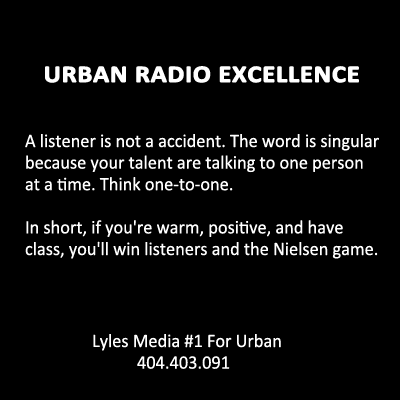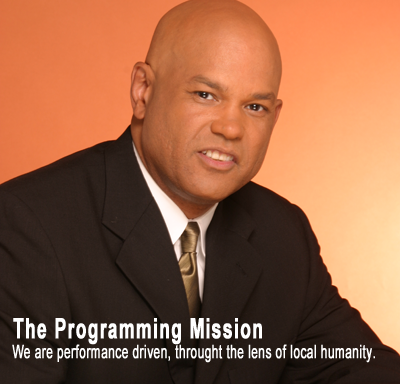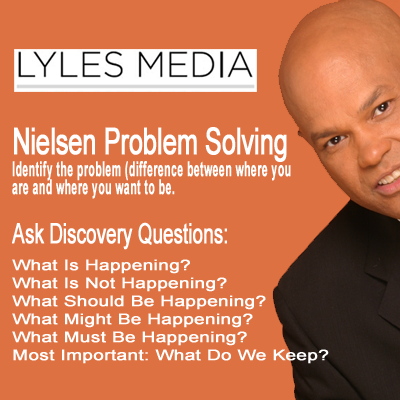|
Happy First Birthday to “Boom” (and today’s classic hip-hop format). (10.29.15) Though consultant Harry Lyles contends that “Classic hip-hop is simply the wrong name for the format,” and he’ll explain why in a moment. It’s been almost exactly a year (October 13, 2014) since Radio One shelved Houston’s “News 92” KROI and replaced it with “Boom 92.” The hype then was that KROI was “the first major-market throwback hip-hop station of its kind in the country.” Southern California’s KDAY/KDEY (both 93.5) had been exploring much of the same playlist for years, but Radio One felt it was formulating the music of the 1990s and 2000s differently. Radio One CEO Alfred Liggins knew the rapturous reception for the format would die down in each market where they’ve introduced it (Dallas, Philly, etc.). But that the main questions were, #1, would it settle in at a good level and #2, was the new “Boom” an improvement over the format it replaced? Liggins seems happy with Houston, where he’s no longer losing millions on an all-newser that couldn’t find its footing. (“Boom 92” is cheaper to run.) And here are the Nielsen topline age 6+ AQH shares for the Houston Boom – there was a 1.0-share from the previous all-news station. Then a 3.2 in Boom’s first month, when weekly cume exploded from 225,000 to 825,000 in its debut week. The next PPM monthlies after the 3.2 were a 2.9 and a 2.5. How about recently? The last four months have run 2.0-1.7-1.7-1.7. Radio One still likes the strategy of owning the classic hip-hop position for Houston, in between its young-end urban “Box 97.9” KBXX and urban AC “Majic 102” KMJQ. And so far it’s stuck with Boom in other markets. The ripple effect has Cumulus/Westwood doing a more inclusive musical take, based on its roaring first-book-#1 success at Indy-market “93.9 the Beat” WRWM. This NOW Newsletter’s asking some experts about “Boom” and its progeny – • “This is the new Adult Urban AC,” says consultant Harry Lyles of Lyles Media Group. As you read in the first story, Harry thinks that “Classic hip-hop is simply the wrong name for this format. Our research tells us, and the ratings success or lack of it teaches us, that the real targeted hip-hop fans don’t call it ‘classic hip-hop,’ and don’t like the name. They refer to it as ‘Hip-hop’ or when applicable, ‘Old School Hip-hop.’” Harry also says “using labels like ‘OG’ [for ‘Original Gangsta’] or ‘Boom’ do the format no favors, and can accidentally paint a negative picture. But when properly programmed, this format can be widely accessible, musically focused, easy to promote, and it can create incredible time-spent-listening.” He says “professionally programmed and marketed Hip-hop and Old School Hip-hop often are great word-of-mouth formats and can deliver powerful and positive listener attention.” But there’s the dimension of talent – “Sadly, many of the existing stations have the wrong type of talent, especially in the morning. It is important that the talent reflects the age and mindset of the target listeners. And as is often the case, the strength of the station, beyond the music, also relies on the morning show – and to be honest, most stations miss the boat.” And finally, what Harry said up-top – “Based on what we have learned, this is the new adult urban AC, that has more appeal than regular UAC.” |
Tom Taylor Now: Harry Lyles Talks “Classic Hip Hop” 10.29.15
Sales & Programming Working Together
Everyone has an important role in the success of a radio station. Programming provides the manufacturing of the product, and the sales department sells the product. This is a vital relationship. All parties must understand exactly what that product is. All aspects of the station’s format should reflect what that image is. That becomes “the plan.”
Inside successful stations the attitude should never be us against them, sales against programming, or programming against sales. The basis of the relationship should be an easy one-to-one. Working together on the same “plan.” Sure, there will always be some tension, but the question is, are you on the team to protect the station? Or are you in this for personal gain?
Programming has goals just as sales people do, but you can’t let your personal goals effect the “plan” of the station. Having your own plan and vision is OK, but what’s more important, is the station’s plan.
The station “plan” has to have support from sales and programming. As sales people, you are an extension of the plan that is set forth by a creative programming department. To create success, any radio station today must stick to the “plan.” When you stick to the “plan” more money is created for the station. There isn’t a programmer or consultant in the business that wants to kick dollars out of the door. If programming has the right plan, the numbers go up, sales dollars will happen, and management is happy.
A lot of people think radio is show business, and that’s not the case. It’s a business with a “plan” supported by sales, as well as programming. Understanding the “plan” is where employees either make or break the station. Never take something personal when it is turned down by programming. The plan has a line, and that line is protected by the programmer and the consultant. Sales must understand that if you degrade or defame the “plan”, it won’t work.
Sales should not be on the street making promises, and bring things back to the station, and dictating what the client wants. In some cases, you are asking for embarrassment in doing so. Remember, the programming door should always be open to help sales to answer the why and when questions for contest and promotions.
The station has a position, and an image to protect. If everyone in the station doesn’t protect it together, it will fail, and fail fast. Understand who you are, what you are, and where you are going with the station programming “plan.”
Programming can’t let certain contests and promotions that are on-air get in the way of station’s “plan.” Understanding the station’s programming “plan” when it comes to the demo, lifestyles, and your market is where you win. Create success collectively as a team and the dollars will roll-in, and all is well!
The Angie Martinez Story, Leaving Hot 97
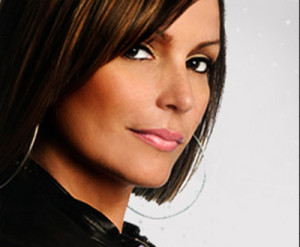
Harry Lyles was consultant to the relaunch of Hot 97 in summer of ’93 when he met Angie Martinez who was working in the promotions department. She wanted to be on the radio just like her successful mother in Boston. After many practice sessions in the production room, we put Angie on Hot 97 to do overnights. The story became history as Angie got better and better and made it happen with New York success starting with Emmis’ Hot 97 and later moved on to iHeart’s Power 105.1 to do afternoons. Currently, a radio legend in New York- with encouragement, coaching, the right direction and talent dedication it proves anything is possible when collectively we work together.
Harry Lyles, The Bio Channel, The “Ted Williams Story” Part 1
March 16, 2011, the Bio Channel, Harry, Station Manger of WVKO, Columbus, Ohio talks about the Golden Voice, Ted Williams.
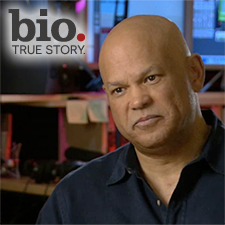
How Black Radio Found Its Voice
 Chandra R. Thomas of Time Magazine gets Harry’s opinion on black radio hosts endorsement of then presidential candidate, Barack Obama.
Chandra R. Thomas of Time Magazine gets Harry’s opinion on black radio hosts endorsement of then presidential candidate, Barack Obama.
3 Axioms of Urban Radio News That Can Score Points
Black Talk Radio – The New Programming Future
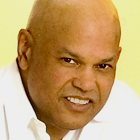 The Black Talk Radio Network Programming Objective
The Black Talk Radio Network Programming Objective
To build a new syndication radio network that fills a massive need in the urban radio industry. The time is right to create, design, and implement new programming concepts outside of the existing network offerings available to Black broadcasters. The BTRN will develop new products and services over a wide spectrum, and utilize the latest concepts of producing, marketing, clearing, and fulfilling network programs.
The New Rationale
The radio industry is rapidly changing, and along with these changes come new challenges for all companies. It is a new day for network providers and syndicators that provide products and services to the industry, especially to Black Radio and its listeners. Syndication and Network programming, once thought to be a dying industry, has suddenly become extremely important to radio stations across America. Black broadcasting companies are feeling the need to stay competitive, and find new ways of doing business in an extremely competitive environment. This sudden demand for high quality and relevant programs has revitalized the syndication business, and that means more talented competition is popping up daily.
In order for BTRN to become competitive, it is essential that we develop new strategies and techniques. Also new and vibrant talk programs, with fresh new talk perceptions for Black radio to embrace.
The New Challenges
The challenge in today’s new business environment is to create new and exciting talk programs that can attract affiliates, are efficient to produce, and capable of financially standing on their own two feet. Meaning, that these new talk shows build an impressive affiliate base, with strong quarter hour audiences that help generate sufficient revenue individually and collectively, and become new cash flow sources for The Black Talk Radio Network.
We live in a new world of accountability. We clearly understand that it is imperative to demonstrate a substantial ROI (Return on Investment) for any new talk program that we create. The building blocks of any project must work in harmony to achieve our primary objective.
The New BTRN Solutions
It is time to develop a new talk syndication/network company that proliferates the Black Listener perspective, which includes programs that reflect the needs of both AM and FM radio listeners in all size markets.
It’s time for a new talk radio syndication/network to provide programs to Black radio stations that do for them what Rush Limbaugh, Dr. Dean Odell and Laura Schlesinger have done for mainstream radio stations.
Much of this will mean that BTRN will have to find and develop the talent to compete in this sometimes aggressive, and emotional world. We can do it. Let’s face it, we are charting relatively new territory, and we may be challenged to invent and develop new ways of doing business that will help us achieve our goals.
We need to design 3 or 4 new program concepts that can be aired on many Black radio stations in both major, and secondary markets. We need to develop programming that will fill a void, and generate enough ratings that advertisers will see the need, and hear the need to be involved. These talk shows should be new, cutting edge concepts, and programs that the radio stations will want and need, and that does not exist in syndication today. These talk programs will be designed to battle with other major syndicators for positions of prominence on leading radio stations in all size markets.
We must also develop new and compelling targeted marketing concepts for station recruitment that incorporate all of the latest database marketing and recruitment techniques being used by syndicators today.
Simultaneously we want to develop new revenue opportunities that will help make each of these new programs a profit center for The Black Talk Network.
Finally, we want to establish a dynamic perception of BTNR in the eyes of America’s radio community, especially among Black Broadcasters. We clearly have an opportunity to establish a foothold in the Black radio community that is currently owned exclusively by no one.
The Conclusion
The time is now.

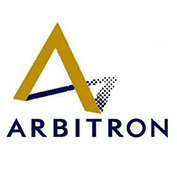 While the use of Arbitron Diaries and the Arbitron PPM system seem to have similar objectives, they are in fact quite different. Their objective is to measure radio listening across a market’s stations. They each have long lists of demographics and each has a number of sub sets of information, all pretty much similar but because their methodologies and technologies are worlds apart, their results can often be wildly different.
While the use of Arbitron Diaries and the Arbitron PPM system seem to have similar objectives, they are in fact quite different. Their objective is to measure radio listening across a market’s stations. They each have long lists of demographics and each has a number of sub sets of information, all pretty much similar but because their methodologies and technologies are worlds apart, their results can often be wildly different.